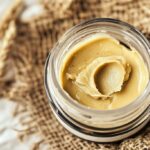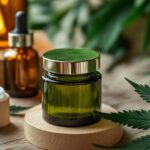Investigating Cannabinoid Effects on Skin Conditions: A Comprehensive Guide
Introduction
In recent years, interest in cannabinoids, specifically cannabidiol (CBD), has surged as both anecdotal evidence and preliminary research suggest a variety of therapeutic benefits for skin conditions. This growing enthusiasm has coincided with an expanding acceptance of cannabis and its derivatives across the United States. As we explore the potential of cannabinoids in dermatology, it’s essential to distill current research and practical applications, particularly concerning prevalent conditions like psoriasis, eczema, and acne. Through this comprehensive guide, we’ll delve into the mechanisms by which cannabinoids interact with our skin, examining both their beneficial properties and the emerging landscape of cannabinoid-infused skincare.
The Role of Cannabinoids in Skin Health
The Endocannabinoid System and Skin
Our skin hosts its own intricate endocannabinoid system (ECS), a complex network of receptors, enzymes, and endocannabinoids that play a crucial role in maintaining skin homeostasis. Cannabinoids, such as CBD, bind toCB1 and CB2 receptors present in the skin, which are found in nerve fibers, mast cells, and keratinocytes.
This connection enables cannabinoids to influence key skin functions such as sensitivity, inflammation, and histamine response, providing an avenue for therapeutic exploration.
Anti-Inflammatory and Anti-Pain Properties
One of the standout benefits of cannabinoids is their anti-inflammatory attributes. Research shows that cannabinoids can modulate immune responses and alleviate pain and discomfort. For example, CBD has been found to enhance the activity of the adenosine A2A receptor, which is crucial for reducing hyperimmune states associated with skin conditions.
These anti-inflammatory and anti-itch properties make cannabinoids attractive options for managing a variety of skin inflammatory diseases.
Cannabinoids and Psoriasis
Mechanism of Action
Psoriasis, a chronic autoimmune disorder, leads to rapid skin cell proliferation and significant inflammation. Evidence suggests that cannabinoids, particularly through CB2 receptor activation, can mitigate some of the disease’s hallmarks. By reducing the differentiation of CD4 T cells, cannabinoids help lower the production of IL-17, a key player in psoriasis pathology.
Clinical Evidence
Emerging studies underscore the potential of cannabinoids in treating psoriasis. For instance, a study revealed that topical cannabinoids could lead to a reduction in inflammatory markers and alleviate symptoms. When applied to the skin, cannabinoids have shown promise in lessening redness and scaling associated with the condition.
Cannabinoids and Eczema (Atopic Dermatitis)
Therapeutic Benefits
Eczema, affecting millions in the U.S., presents challenges marked by skin dryness, intense itching, and inflammation. Cannabinoids like CBD and palmitoylethanolamide (PEA) have been noted for their beneficial effects. In a comprehensive multinational cohort study, participants applying a PEA cream reported marked improvements in dryness and itching, with many moving away from traditional corticosteroid treatments.
Topical Applications
The topical application of CBD has been associated with increased skin hydration and elasticity. It can effectively penetrate keratinocytes, combating oxidative stress from sources like UV radiation, allowing for a more resilient skin barrier. Consequently, incorporating CBD-infused moisturizers offers exciting potential for individuals managing eczema.
Cannabinoids and Acne
Pathophysiology and Treatment
Acne arises from a confluence of factors, including excess oil production, clogged pores, bacteria, and inflammation. Notably, CBD regulation of sebaceous gland activity proves promising; it can slow sebum production and diminish inflammation. Through various studies, CBD has been shown to inhibit pro-acne mediators, suggesting its multifaceted role in acne management.
Clinical Studies
One impactful study explored the effects of a 3% cannabis seed extract cream over 12 weeks. Participants experienced significant reductions in both sebum production and skin redness. While these results are promising, they underscore the need for broader clinical trials to substantiate these early findings.
Topical Applications of Cannabinoids
Safety and Efficacy
The safety profile of topical cannabinoids—and their efficacy in treating skin disorders—is an area of ongoing investigation. Existing studies primarily focus on animal models, and there’s a noticeable gap when it comes to expansive clinical trials involving humans. Those who find little relief from conventional treatments may benefit from the integration of cannabinoid therapies, yet caution is warranted.
Practical Use
As the market for cannabis-infused personal care products swells, consumers can find an array of options from moisturizers to muscle relief creams boasting CBD. While these products are often marketed for their soothing and anti-inflammatory properties, it’s imperative for users to stay informed about the ingredients and concentrations of such products.
Future Directions
Research Needs
The horizon for cannabinoid applications in dermatology is filled with potential. Yet, the field calls for comprehensive, randomized, controlled trials to robustly evaluate safety and efficacy. Attention must also focus on unraveling the long-term effects and optimal dosages for therapeutic use in combating skin conditions.
Market Impact
As scientific insights grow and consumer acceptance solidifies, the cannabis-based personal care market is expected to flourish. If research continues to substantiate the benefits of cannabinoids, they could become commonplace as alternative or complementary therapies for skin health.
Conclusion
Cannabinoids, particularly CBD, present a fascinating frontier in treating skin conditions ranging from psoriasis and eczema to acne. Their inherent anti-inflammatory, anti-pain, and skin-soothing properties position them as valuable agents in skincare. However, while preliminary evidence is encouraging, further validation through extensive clinical trials is necessary to ensure these therapies are both safe and effective.
Actionable Tips
- Consult a Dermatologist: Before integrating cannabinoid-based products into your regimen, especially if you have a pre-existing skin condition, it’s wise to consult a healthcare professional.
- Choose Reputable Products: Ensure you’re selecting products from trusted brands that disclose their ingredient lists and cannabinoid concentrations clearly.
- Monitor and Report Changes: Keep a journal of your skin’s response to cannabinoid products and share this with your dermatologist to contribute to ongoing studies on cannabinoid treatments.
By remaining engaged with emerging research and informed about product options, individuals can make proactive decisions about incorporating cannabinoids into their skincare routines, ultimately paving the way to healthier skin and enhanced quality of life.





















